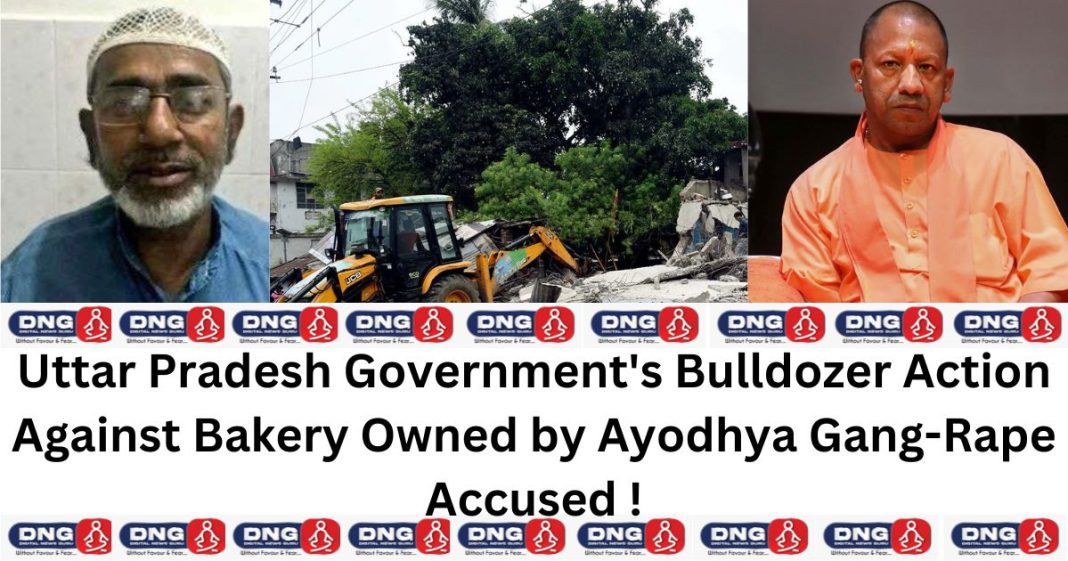DIGITAL NEWS GURU UTTAR PRADESH DESK :-
Uttar Pradesh Government’s Bulldozer Action Against Bakery Owned by Ayodhya Gang-Rape Accused !
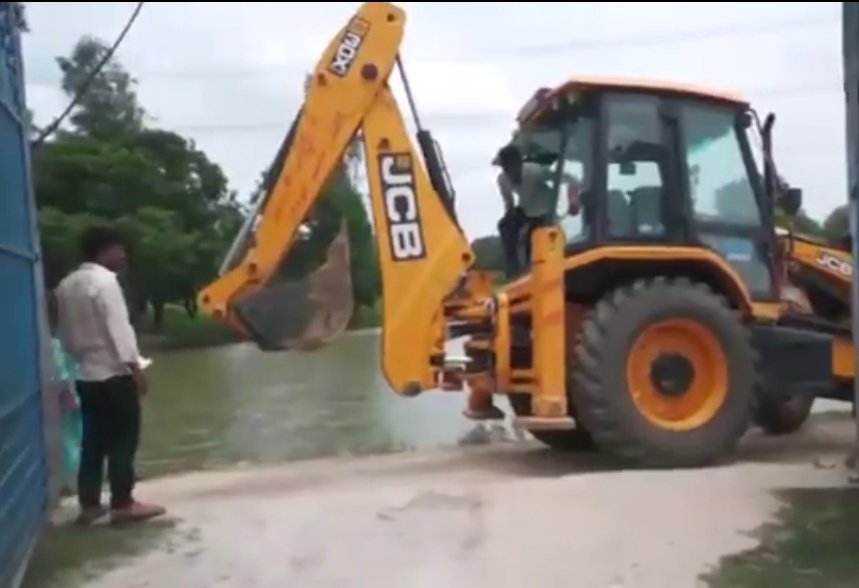
In a controversial and high-profile incident, the Uttar Pradesh government recently launched a ‘bulldozer action’ against a bakery owned by Moid Khan, a local Samajwadi Party (SP) leader accused of being involved in the gang rape of a 12-year-old girl in the Ayodhya district.
This decisive move occurred shortly after the arrest of Moid Khan and his employee, Raju Khan, from the Pura Kalandar area, following allegations of their involvement in the heinous crime.
The Incident:

The case revolves around the brutal assault of a minor girl, who was allegedly gang-raped by three men, including Moid Khan. The incident has garnered significant attention due to the accused’s political connections and the grievous nature of the crime. According to reports, the assault was not only physically violent but was also recorded on video, adding a disturbing layer of exploitation and trauma for the victim.
The National Commission for Protection of Child Rights (NCPCR) has taken a strong stance on the issue, demanding immediate and stringent legal action under the Protection of Children from Sexual Offences (POCSO) Act.
Legal and Administrative Response:
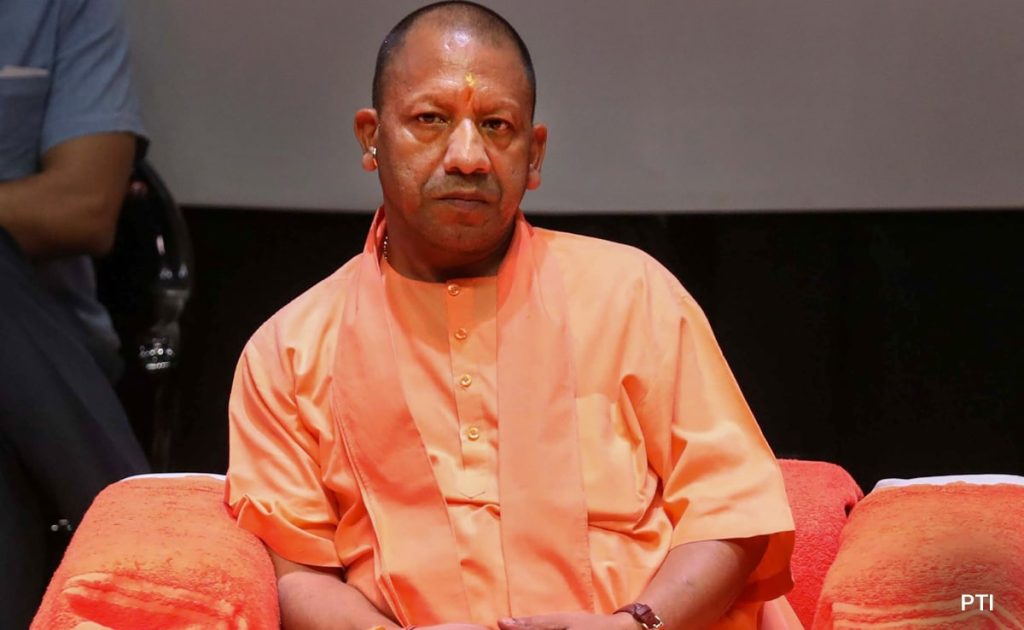
Following the arrest, the local authorities initiated the demolition of the bakery owned by Moid Khan. This action is part of a broader strategy by the Uttar Pradesh government, which has increasingly used property demolition as a punitive measure against those accused of serious crimes, especially in cases involving politically sensitive figures. The ‘bulldozer action’ is seen as a demonstration of the government’s zero-tolerance policy towards crime and an attempt to convey a strong message against lawlessness.
Chief Minister Yogi Adityanath’s administration has been known for its aggressive stance on law and order, often employing bulldozers to demolish properties linked to accused individuals as a form of immediate justice or punishment. Critics argue that this approach sometimes circumvents due process and can be seen as an extra-judicial measure. However, supporters believe it serves as a necessary deterrent against crime, particularly in cases where the accused have significant local influence and might otherwise evade justice.
Public and Political Reactions:
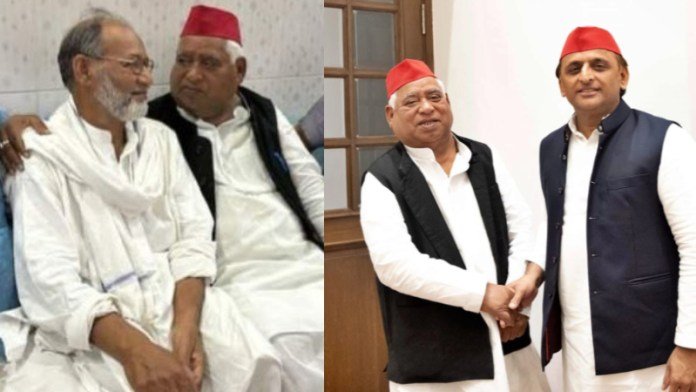
The demolition has sparked varied reactions across the political spectrum and among the public. Supporters of the Bharatiya Janata Party (BJP), which leads the state government, have praised the action as a bold step towards justice, reflecting the administration’s commitment to maintaining law and order. They argue that such measures are necessary to break the nexus between crime and politics, particularly in cases involving vulnerable victims like minors.
Conversely, critics, including members of the Samajwadi Party and civil rights activists, have condemned the demolition as an act of political vendetta and an abuse of power. They argue that while the crime itself is indefensible and warrants severe punishment, the demolition of the property without a formal legal adjudication sets a dangerous precedent. They caution that such actions could lead to a slippery slope where the rule of law is overshadowed by executive overreach, undermining democratic norms and due process.
Broader Implications:
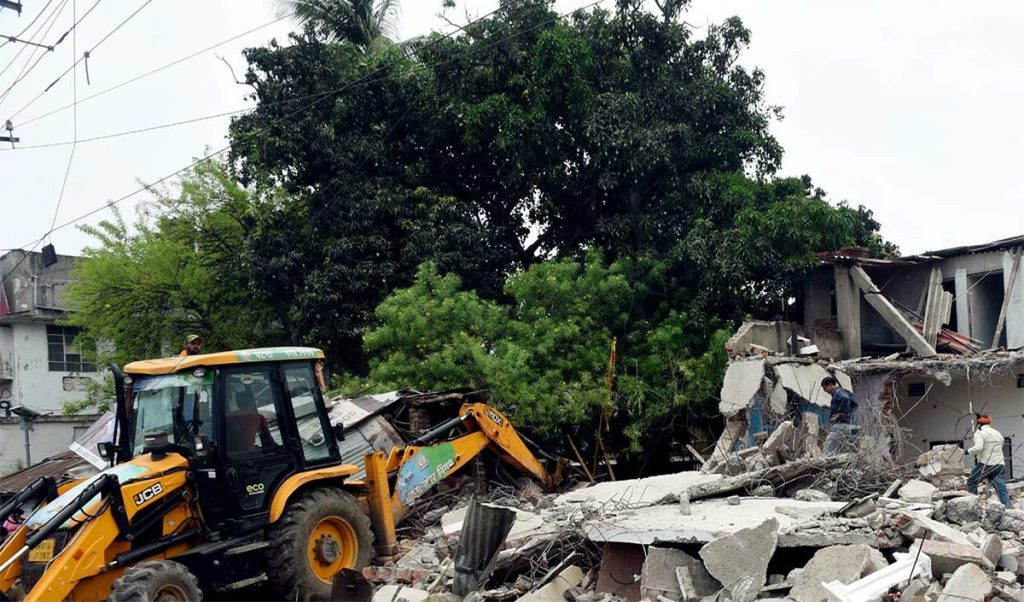
The use of bulldozer actions by the U.P. government raises important questions about the balance between swift justice and adherence to legal procedures. While the intention to punish and deter crime is clear, the method of doing so—particularly without a completed judicial process—has led to debates about the potential for misuse of power. This incident underscores the tension between state authority and individual rights, a recurring theme in the discourse surrounding governance and justice in India.
Furthermore, the NCPCR’s involvement highlights the critical need for protecting child rights and ensuring that the legal process respects the privacy and dignity of the victim. The Commission has called for a thorough investigation and has stressed the importance of supporting the victim’s recovery and rehabilitation.
Conclusion:

The recent demolition of Moid Khan’s bakery in Ayodhya is emblematic of a broader trend in Uttar Pradesh’s governance under Yogi Adityanath, where visible, immediate actions are taken against accused individuals, especially in high-profile cases. While this approach may resonate with those demanding swift justice, it also raises significant concerns about the potential erosion of legal norms and the importance of ensuring that all punitive actions are grounded in the rule of law.
As the legal proceedings continue, the focus will undoubtedly remain on ensuring justice for the victim, addressing the broader implications of such government actions, and maintaining a balance between state power and individual rights. The case serves as a critical test of the justice system’s ability to navigate these complex issues in a fair and transparent manner.
YOU MAY ALSO READ :- Kishore kumar birth anniversary : आज दिग्गज किशोर कुमार की है 95वीं जयंती , आईए जानते है इनके जीवन से जुड़ी कुछ बातें !



